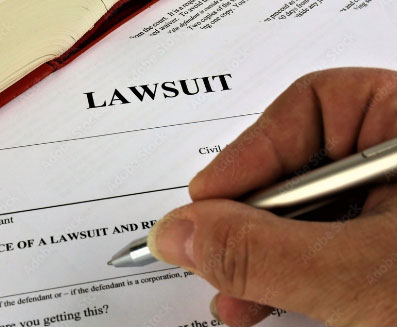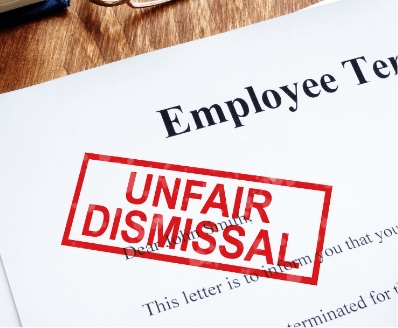San Diego
Workplace
Retaliation
Attorneys
Were You Punished for Reporting
Discrimination at Work?
Employers that take retaliatory action against employees who have reported any type of discrimination or harassment are liable to face criminal charges. This is an illegal act that applies to contract workers as well as those employed “at will.”
- Terminating or demoting an employee
- Denying a promotion or pay raise
-
Reassigning an employee to a different role or
location as punishment
- Modifying the worker’s duties or schedule
- Creating a hostile work environment
-
Excluding the employee from normal activities
to isolate him/her
There are a number of laws in California designed to protect workers against such retaliation
and to safeguard your continued employment. Our lawyers put your interests first and will work
diligently to ensure your case is handled with the utmost effectiveness and professionalism.
An attorney from Haeggquist & Eck, LLP will discuss with you a variety of choices and options
available if you feel that your employer is treating you inappropriately because you have filed
a complaint regarding harassment or discrimination in the workplace.
Reach out to a retaliation attorney in San Diego who can help by contacting Haeggquist & Eck, LLP online or calling (619) 342-8000 to schedule a free case evaluation.
Our Attorneys Help Retaliation
Victims Seek Compensation
California has a broad range of anti-retaliation laws in addition to federal laws. It is illegal for employers to retaliate against workers who report any form of racial harassment, sexual harassment, religious harassment, sexual orientation or gender identity harassment, disability harassment, or national origin harassment. If your employer retaliated against you after you reported misconduct or participated in an investigation of his/her misconduct, you may be able to seek damages.
Compensation for victims of employer retaliation can include:
- Lost wages
- Lost future earnings
- Lost benefits
- Emotional trauma and distress
- Damages for harm to your reputation
- Attorneys fees and legal costs
- Reinstatement of position
- Other damages
If you have experienced retaliation or serious and persistent hostility in the workplace after reporting any of these forms of discrimination, you may be eligible for just compensation. Our lawyers at Haeggquist & Eck, LLP will work to see that you are compensated for damages you suffered, and will see that the retaliation is stopped by obtaining an injunction from the court.
Whistleblower Protection In California
Attorney Aaron M. Olsen and others at Haeggquist & Eck, LLP has dedicated almost two decades to representing employees in whistleblower cases. We are happy to answer any questions you may have if you believe you have been retaliated against in the workplace for blowing the whistle on violations of the law.
California whistleblower laws prohibit employers from retaliating against workers who report suspected violations of:
- Laws
- Regulations
- Public Policy
The laws are set forth in several statutes and cover several different situations. Some important California-specific laws include:
- General Whistleblower Law (catchall) – Labor Code §1102.5
- Wage & Hour and Other Labor Code Violations – Labor Code §98.6
- Anti-Discrimination Protections (FEHA) – Government Code §12940 Occupational Safety & Health Hazards – Labor Code §§6310 and 6311
- Public Employees – Government Code §8547, et seq.
- School Employees Reporting Improper Government Activity – Education Code §44110
- Healthcare workers and patient safety – Health & Safety Code §1278.5
- “Qui Tam” False Claims Act on behalf of State – Government Code §§ 12650, et seq.
- Securities Fraud – Publicly Traded Companies – Sarbanes-Oxley Act of 2002
California’s catchall General Whistleblower Law (Labor Code §1102.5) is one of the most widely used whistleblower laws because it can be used to cover most situations where an employee is retaliated against for reporting conduct the employee reasonably believes violates the law. The law has an employee-friendly burden of proof compared to many other laws and allows employees to recover attorneys’ fees and costs upon prevailing.
What is “whistleblowing”?
California laws against retaliation generally protect employees who:
- Report conduct they reasonably believe violates a law or regulation to a supervisor or other person who has authority to investigate the violation.
- Report conduct they reasonably believe violates a law or regulation to a government or law enforcement agency.
- Refuse to participate in an activity that violates a law or regulation.
You may be protected by the General Whistleblower Law even if your employer did not violate the law, if you reasonably believed that a violation occurred.
What does retaliation look like?
Acts of retaliation can take many forms. To be legally actionable, employees must show they were subjected to an “adverse employment action,” which includes any course or pattern of conduct that, taken as a whole, materially and adversely affect the terms, conditions, or privileges of employment. Adverse employment actions include conduct that is reasonably likely to impair an employee’s job performance or prospects for advancement or promotion. Such actions include but are not limited to ultimate actions such as termination or demotion. More subtle actions include, but are not limited to:
- An unfair write-up
- Failure to promote when warranted
- Denial of access to training or professional development opportunities
- Denial of access to resources or tools necessary to do the job
It is important to note that other conduct that may seem trivial or minor, even if not actionable in and of itself, may still be used to prove that an ultimate adverse employment action was retaliatory. Such conduct may include, but is not limited to:
- Getting the cold shoulder from a supervisor
- Being left off communications or left out of meetings
- Generalized hostility in the workplace
- Unfair criticism of work
- Lack of recognition for accomplishments
What are my options if I am a victim of retaliation?
Employees who have been retaliated against for reporting violations of the law may sue their employer to recover:
- Lost wages and benefits
- Compensation for emotional distress, humiliation, embarrassment, inconvenience, loss of enjoyment of life, pain and suffering, anxiety, depression, and/or loss of career opportunities
- Recovery of attorneys’ fees and costs
- In some cases, punitive damages
Do you need legal assistance?
We at Haeggquist & Eck, LLP understand these can be emotionally difficult experiences, especially when they are intentional. If you believe your employer or coworkers are retaliating against you because you reported conduct you believed violated the law, we can provide the legal support you need.
For more information about how Haeggquist & Eck, LLP can help, contact us online or call (619) 342-8000 to schedule a free initial evaluation.
A Better Chance at Reaching
Favorable Outcomes
The San Diego retaliation attorneys at Haeggquist & Eck, LLP are thoroughly experienced in
employment law and have a long track record of success for our clients. We provide protection
against employer retaliation and other forms of employment discrimination and harassment, and
we are dedicated to justice and the rights of the individual in the workplace.
harassment, firing, demotion or failure to receive an appropriate promotion,
denial of benefits, or in any other way, contact Haeggquist & Eck, LLP online
today for a free case evaluation and exceptional representation.





















